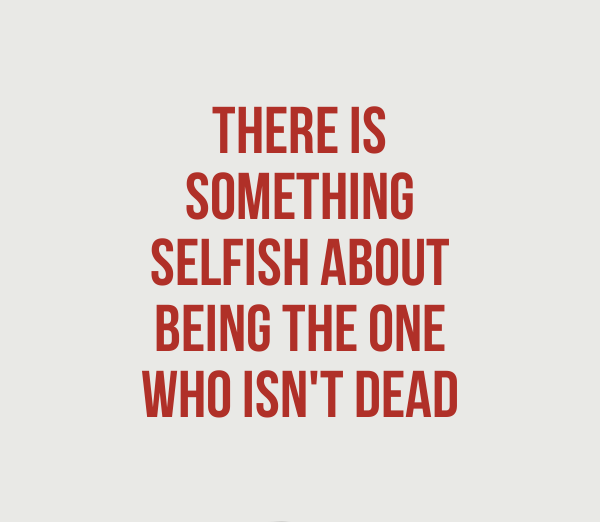
Everything Valentine’s Day represents—new love, romance, sex—is pretty much the opposite of “mom” and “death.”
For me, the concepts will be forever linked. My mother died on February 13th last year. She was 61 and I was 31.
When you tell people about your mom’s death in answer to the question of what you’re doing on Valentine’s Day, they say, “I’m sorry.” Your instinct is to comfort them, which sounds backward but feels natural: “It’s okay,” you say. It isn’t okay when your mother is taken from you in a freak accident, but for them it will be and that’s what you mean at the time, anyway.
If you’ve lost a parent early, you are familiar with this awkward dance of comforting. I’ve gotten good at it, and performing it when the situation calls has become routine and mechanical.
I’ve been doing it since long before my mom actually died in a legal sense. I first started getting practice on September 6th, five months prior. It was the last time I spoke with her.
I have a record of the exact day because she emailed me. The subject was “call” and the email was brief:
I am not on call the weekend of Nov 22-24 so if you need a car, I am sure we can work something out.
I hope we can help you with a designer. Please try to find one at the school of design.
I hope we can have a leisurely conversation and you can tell me what you have been up to and I can tell you what I am up to.
Love, Mom
We had spoken on the phone earlier, but I ended the conversation prematurely because I was meeting some friends. Ending calls early was a sore spot in our relationship, a sort of dance we performed with me leading and she reluctant to follow. The email was her way of gently reminding me that I should spend more time talking to her.
It’s a painful last word to have from your dead mom.
Later that night, she fell and hit her head while at a friend’s house. The last thing she said was, “I think I hurt my head,” to my father as he held her and attended her bleeding wound. The ambulance arrived quickly and she was in surgery in less than an hour.
She didn’t stop breathing that night but never spoke again.
After several weeks in the hospital, where hopes for recovery were buoyed and submarined on a daily basis, it was made clear that she would likely never wake up, and if she did, she would be a vegetable. Second, third, and fourth opinions were sought and secured, all delivering the same verdict.
When she fell, it was a call she made to me, and I answered. She wouldn’t let me go back to my life until she died, more than five months later.
We moved her into hospice in late January, and she left us for good in the middle of the night, hours before Valentine’s Day.
My discomfort with these facts—particularly the discrepancy between when she died and when she really died—has long confused me. On the anniversary of her exit from hospice, I realize why.
There is something selfish about being the one who isn’t dead, about being alive and moving on, about spending the time to carefully explain to someone the story of your mom’s end and how the death day and the real death day aren’t the same day—and why it matters to you.
When someone close to you dies, you have a choice about what you do next. You can move on or not. I’ve chosen to move on. I’ve chosen to do the thing that I always did with my mom, which is hang up the phone before she was ready to end the conversation.
Like nearly everything that transpires between a parent and child, it’s selfish but also natural and necessary. (Isn’t parenting an inherent act of selflessness and being cared for as a child an inherent act of selfishness?)
So, happy death day. If you want to tell me you’re sorry, we can dance. It’s okay.
•
 Jeremy Greenfield is contributors editor at TheStreet. He has written for The Atlantic, the Wall Street Journal and others. He lives in Brooklyn Heights. You can reach him by email or on Twitter @JDGreenfield.
Jeremy Greenfield is contributors editor at TheStreet. He has written for The Atlantic, the Wall Street Journal and others. He lives in Brooklyn Heights. You can reach him by email or on Twitter @JDGreenfield.